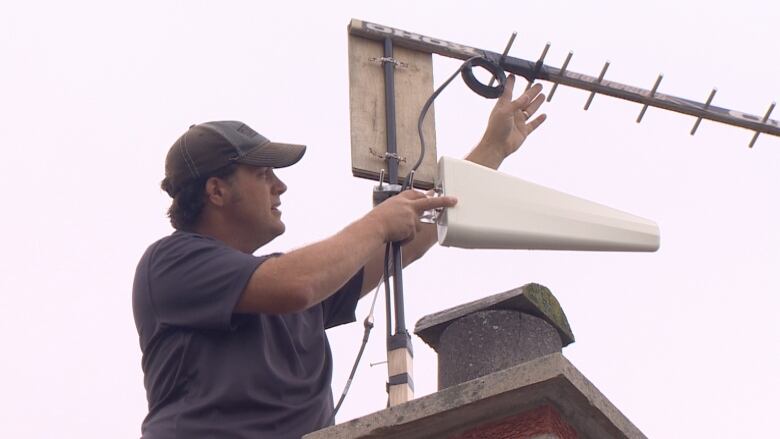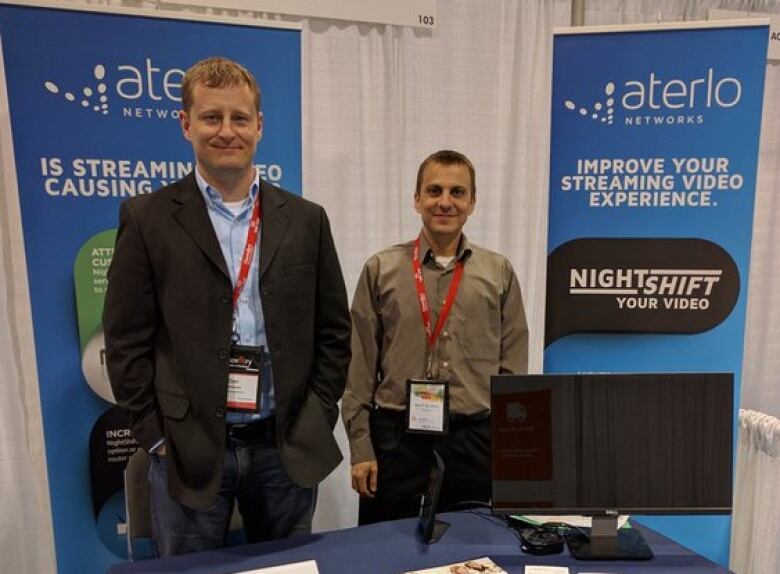Waterloo company Aterlo helps bring Netflix to remote, rural communities
Video streaming issues in millions of households because of spotty internet, company's VP says

A Waterloo, Ont. company is helping entertain people in remote and rural communities by making the video service Netflix available without the need to stream television shows and movies over the internet.
"It's pretty easy if you live in an area with good internet to think you just pop Netflix up and it works, but that's not the case for millions of households," said Dan Siemon, vice president of product management for Aterlo Networks.
- CRTC declares broadband internet access a basic service
- Federal government spending $500M to expand high-speed Internet to remote communities
- Wellington County Library'sWi-Fihotspot lending program a 'life saver,' says patron
Aterlo has developed NightShift, atechnology that collects those shows and movies and preloadsthemonto a device like a digital video recorder (DVR). The shows arerecordedat night when internet traffic is usually lower, but NightShift is also intuitive it will preload items it thinks the user would want to watch.

Remote customers get same experience as rest of Canada
The company sells devices to individuals to use in their homes, but Aterlo recently partnered with Meshnet, an internet provider in Iqaluit.
As part of that project, there is a NightShift device shared by the entire city, meaning if one person watches a television show on Netflix, it will be available to everyone else in the Nunavut capital.
- No connectivity: the internet 'blackout zone' that is rural Canada
- Canada-wide broadband could improve northern healthcare, education
"Partnering with Aterlo means that our customers have access to the same streaming video experience as the rest of Canada," David Fulgham, CEO of Meshnet, said in a release.
"Keeping content local and providing unprecedented access to this content, at up to 20 Mbps (megabits per second)or more, allows our customers to enjoy Netflix the way it was meant to be, without buffering and in HD."
Currently, NightShift only provides Netflix content, and to access it, the customers have to be Netflix subscribers.

A growing problem
Along with individual homes, Siemon said they've seen interest inNightShift from work camps in remote areas and from people who have private yachts.
While some may argue the technology could be used for more than just entertainment, Scot Loach, the company's chief technology officer, said limiting streaming in a community with spottyinternet improves the service for everyone.
"By basically taking Netflix off those limited pipes, you make those limited pipes better for everything else that's happening on the internet. So if somebody is doing just their email or basic web browsing, but serving all the Netflix locally and not letting it go over those long-distance links, you're making it better for everything everyone else is doing in the community," Loach said.
There have been promises to improve internet access across the country, including in rural and remote areas, but that reality will take time.
In the meantime, better quality videos like those in 4Kor Ultra HD, which require more bandwidth, are coming online.
"The network upgrades aren't happening fast enough to really keep up with the increase use of streaming video," Loach said. "This is actually a problem that's growing, so we're really focused on solving that problem."












_(720p).jpg)


 OFFICIAL HD MUSIC VIDEO.jpg)
.jpg)



























































































